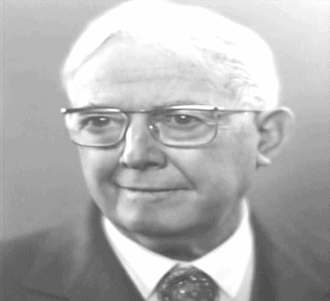
Strange new link discovered
—-Important Message—-
Massive erections from a fried egg sandwich?

This is pretty crazy… but believe it or not, eating a fried egg sandwich in the morning…
…can give you a massive boner later in the night!
And the way it works is by delivering a good healthy dose of cholesterol…
Because the truth is — cholesterol is NECESSARY for testosterone…
So men want MORE cholesterol to get MORE natural testosterone.
But sometimes — cholesterol gets too high because it isn’t being converted into testosterone properly…
Which is why I’ve come up with this super easy protocol to speed this process back up again…
———-
Here’s why men with high cholesterol may have a thyroid problem
Dr. Broda Barnes published a number of important books on hypothyroidism back in the 1970s.
One thing he talked about was the relationship between thyroid and cholesterol.
He was not the first person to observe the relationship between the thyroid gland and cholesterol levels.
Human experiments on the subject were performed as far back as the 1930s.
But he may have been the first to see the effects of thyroid hormone on cholesterol levels on a large scale in medical practice.
Barnes found that patients with low thyroid usually have high cholesterol.
When Dr. Barnes helped his hypothyroidism patients with thyroid treatments, their cholesterol levels came down.
Recent research has indicated that many people with high cholesterol may also have untreated thyroid problems.
Even subclinical hypothyroidism, which is often ignored, can increase cholesterol. I believe that 40% of men are low in thyroid…so this probably means YOU…

The human research was carried out at the Department of Biochemistry, Government Doon Medical College, Dehradun, India. The results were published in the Indian Journal of Applied Research.
The researchers were investigating the link between type II diabetes and subclinical hyperthyroidism.
Subclinical hypothyroidism is diagnosed when the TSH (thyroid stimulating hormone) is elevated, but the thyroid hormone T4 is in the normal range.
The researchers recruited 100 people with type II diabetes and another 100 people without diabetes.There was an equal split of men and women in both groups.
“Out of the 100 Diabetics (48 Males and 52 females) and of 100 Nondiabetics (56 male and 44 females) were included in the study.”
The participants were studied for a six-month period in 2018.
The researchers carried out a large number of blood tests on all of the participants in the study.
These tests included thyroid hormones, HbA1c, triglycerides, and cholesterol.
“All the 200 participants underwent a biochemical analysis for FPS, PPPS, HbA1C, Total T3, Total T4, TSH, Total Cholesterol, TG and HDL.”
The researchers found that people with subclinical hypothyroidism had higher cholesterol.
“In patients with subclinical hypothyroidism we found raised level of total cholesterol.”
The study reinforces the importance of the work carried out by Dr. Broda Barnes.
These findings show that even mild and undiagnosed hypothyroidism can lead to significant increases in cholesterol.
A study done way back in 1939 found that cholesterol levels were a mirror image of the basal metabolic rate.
Thyroid hormones control metabolism. As metabolism decreases, cholesterol levels increase.
In these cases, cholesterol can be lowered by careful thyroid replacement therapy.
The current study also found a strong link between subclinical hypothyroidism and HbA1c.
HbA1c is a good long-term measure of blood sugar control. In diabetics, HbA1c tells us how well blood sugar is being managed.
Participants with subclinical hypothyroidism were much more likely to have higher HbA1c.
“In patients with subclinical hypothyroidism we found raised levels of HbA1c in both female and male cases as compared to controls.”
Poor glycaemic control may eventually increase the risk of developing subclinical hypothyroidism.
“The risk of subclinical hypothyroidism is increased with poor glycaemic control specifically if HbA1c was more than 9%.”
There is often a close relationship between thyroid problems and type II diabetes. It can become complicated, as either problem can be a cause of the other.
Another way of looking at the relationship is that type II diabetes and thyroid problems are both symptoms of a low metabolic rate.
“Several reports have documented that thyroid dysfunction is commonly seen in the diabetic population.”
Other research has found a clear link between thyroid hormones and insulin — again associating type II diabetes with thyroid problems.
“Secretion of insulin is influenced by thyroid hormones. Insulin resistance may be involved in the Association of subclinical hypothyroidism with poor glycaemic control.”
This line of research reinforces the importance of a proper investigation of thyroid function in people with high cholesterol, type II diabetes, or other metabolic problems.
Taking excessive thyroid hormones is very dangerous.
While thyroid supplementation is hugely beneficial for hypothyroid people, it must be properly managed with regular blood tests.
You should always consult a healthcare practitioner about treating, diagnosing, and monitoring health-related problems.
—-Important Message—-
CID5920 may let men live decades longer
CID5920 is a natural “anti-aging” hormone that was first discovered in 1950 by Dr. Broda Barnes.

He tested this hormone on more than 3,000 men, reporting powerful health benefits like a faster metabolism, perfect blood pressure, more stamina, even better sexual abilities…
And since then, it’s been kept a secret — only available to the affluent, privileged upper class of celebrities and politicians.
Until now… now it’s finally available to the public. Men like you and me.
But there’s no telling when it may get “banned” again…get CID5920 before it’s gone
———-
